New York made Wiki – now he wants a street named after him
"The city’s my biggest influence"
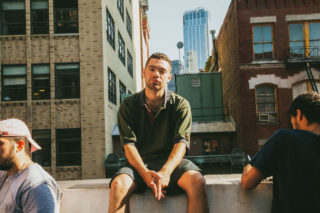
"The city’s my biggest influence"
Hip hop is written into the streets and subways of New York, if you know where to look – mostly, it’s there even when you aren’t looking for it. There’s the boom bap of old school bass drifting out of every other passing car and through the badly insulated headphones of passing strangers. The bloc parties and the summer street dance concerts at city parks. There’s the litefeet boys, still swinging from subway car poles as you make your way home, back-flipping to tinny beats played through iPhone speakers, despite the city’s clampdown on subway dancing meaning that, if caught, they face a Misdemeanour A charge (and the threat of up to a year in prison). There’s the Graffiti Hall of Fame at the Jackie Robinson Education Complex on 106 Street and Park Avenue, where, back in 1986, the school principal told students they could use the playground walls as a canvas, so long as they stopped spraying outside. The Frank. E. Campbell Funeral Chapel on Madison Avenue at 81st Street, where Biggie, Aaliyah and Heavy D were laid to rest. Up in Harlem, tourists huddle in front of the Big L memorial mural on 104 W 140th St, snapping photos as locals walk past, unimpressed, pulling their baseball caps down low and shaking their heads at this intrusion on their neighbourhood.
Hip hop is the way the city communicates with itself, as cultural critic Marshall Berman argued when he described how graffiti painted onto subway trains in the 1970s and ’80s provided a way for those from impoverished neighbourhoods to speak to people in more affluent areas. I guess this is what rapper Wiki means when he tells me that when it comes to his music, “The city knows. New York knows it’s good.”
“That’s the thing, you know what I’m saying?” he says. “You can go anywhere. Like, obviously, you don’t wanna go to Times Square. You gotta go to the Bronx, obviously, if you wanna understand where [hip hop] came from, you go to the South Bronx. But then hip hop spread to everywhere, and every neighbourhood had their own thing going on. You could go Uptown, to the Bronx, East Harlem, Spanish Harlem, 125th, walk down 125th. You wanna know my shit you go to China Town, you go Upper West Side, walk down 96th Street. Whatever. That’s what I’m saying.”
Sipping on a can of beer as we chat, Wiki speaks with a broad New York accent, lacing the conversation with so much city slang that his PR emails me the next day to check I understand what he is saying. (“The gram?” I ask, at one point. “Yeah, yeah,” he laughs, raising his can, “The Instagram!”).
“The whole hip hop scene – it’s about finding your culture.” He grins a gummy smile that reveals missing front teeth. “A certain group of kids, some of them skate, some of them do graffiti, some of them make music, some of them make art, some of them in a fucking band, you know what I mean? Like that’s hip hop, you know what I’m saying? It really just depends what level you talking about. I got Tony Seltzer, who produced a lot of the [new] record, he makes a lot of beats, like a lot of litefeet beats for the litefeet cats, so in that sense there’s all these connections [in the city].”
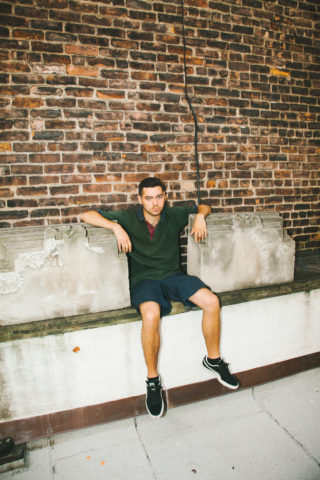
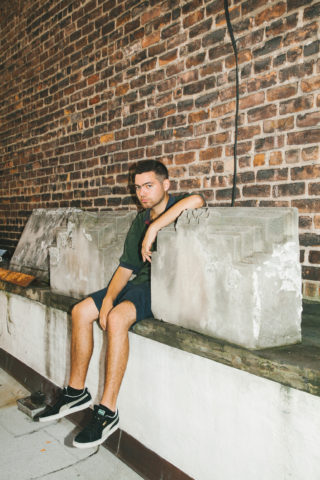
Our interview takes place before the release of Wiki’s album ‘No Mountains in Manhattan’. This is the first big solo release for Wiki – though the rapper has been making waves on the scene for some time. Signed to XL Recordings before he left high school, Patrick ‘Wiki’ Morales performed as part of the RATKING collective (with Sporting Life and Hakeem ‘Hak’ Lewis) touring the world on the back of their 2014 album ‘So It Goes’, until that fell apart when Hak announced his departure under apparently acrimonious circumstances. Meanwhile, Wiki had been working on solo material. In 2011 he dropped his debut EP, ‘1993’, followed by the album ‘Lil Me’, released on RATKING’s own Letter Racer label in 2015. In February of this year he dropped a second EP, ‘What Happened to Fire?’, a collaboration with Your Old Droog.
Now, after years of graft he is ready to blow up the international music scene, and I don’t doubt that ‘No Mountains in Manhattan’ is the record that will do it. It already sounds like a classic – with his mean, sexy flow painting an intimate cityscape, cameos from Ghostface Killah, Lakutis and Your Old Droog, and those off-key, bouncing beats that could be taken straight from old school, except for their freshness. It’s not quite a concept album, but Wiki is insistent that it tells a story. “You couldn’t put any of those songs in any order,” he says, “there’s a little story going on in it. There’s peaks and then flows, and the end’s kinda comic – and some fans are gonna like that, and some are gonna be like, ‘oh that song’s tight’. I’m down with whatever.”
Wiki’s ambition for this record is tempered with an endearing, tenacious realism – yeah, he’s worked hard, and he’s ready for it, but he is not taking instant success for granted. “I feel like I’m happy about how I came up. I feel like it’s good to just learn. You don’t wanna get thrown out there so quick. Like, I’m happy I had a group around me. I got to learn and tour around the world with them, you know what I’m saying? Now I’m ready where I’m at. Like I got a fan base, I’m good, I know I can make rent money.” He shrugs. “It’s coming. I know it’s coming. I’ve taken time off to work on this project and now I’m ready to go get it. But we’ll see. If this one isn’t the one that hits, it’s onto the next. Coz ‘Lil Me’, we did that on our own. Me and Letter Racer and my team. And that shit did well. We toured in Europe and they knew the fucking words. That’s all I care about. This one we got XL behind us so I think we might do something.” He takes a sip of his beer. “We’ll see. We’ll see.”
Still, there are points in the interview when he reveals the depth of his drive. I ask him whether he has long term plans and he smiles.
I press him. Where do you want to be in five years?
“Five years?” He looks up at the ceiling, flicking his fingers to calculate what that means in terms of time. “When I’m 28? Hopefully I’ll be more albums deep but with some classics; a couple classics deep. Try to lay my legacy down in New York, you know what I’m saying?” He hesitates. “I’m trying to get a street named after me. Not by 28. But I gotta make the steps by then. I gotta do a lotta shit even by 28 to do that.” He laughs and gives a self-deprecating little eyebrow lift, as if to suggest he’s only half-serious. “I’m tryna be on my LaGuardia shit, you know what I’m saying?”
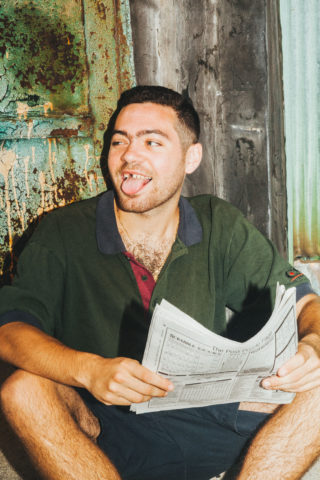
Even if he never gets a street named after him, it’s clear that Wiki is something special. It’s the combination of that old school classic sound and the contemporary crispness. This is someone with a prodigious aptitude for his chosen craft – though he is modest enough to attribute his success so far to a combination of skill, luck and youthful optimism. “I think I was lucky because I was young enough when I made it happen, or started to. Like, when you get older you have those thoughts [about the possibility of not making it]. When you’re in high school still you’re like, ‘hell yeah!’ And then when you get signed it’s like, ‘bet!’ It’s not like I was phased by like, ‘oh my God I’m 25 and I’m still trying to get somewhere,’ or whatever, you know what I mean? So I got lucky in that sense. I got lucky I think because I was good. And because I knew what the fuck to do and the people to work with and the right video to put out. And people saw something in me that they hadn’t seen in a long time, and also saw something new. I mean, it’s my skill that comes from all that, but I’m still lucky.”
Wiki has been honing his flow since his early teens, when he’d freestyle with friends and at parties. He wasn’t exclusively into hip hop – he cites diverse early musical influences, including Michael Jackson, Broadway musicals and the Puerto Rican jazz musician Ray Barretto (“That fool Ray Barretto, when I got put on to him I was like, ‘this dude’s from New York, Puerto Rican G, doing the craziest rhythms’, like that shit influenced my rap, straight up.”).
Still, part of the city culture involved rapping with friends, and he soon realised he was better than the average kid. “That’s where it comes from. That’s when you find out you can rap. Everyone freestyles and it doesn’t even matter, like if you’re growing up now, and one kid’s gonna have the illest flow, you know what I mean? So then it’s like from there where you go. I wasn’t battling, like maybe sometimes at a party I’d battle someone for some dumb shit, but I wasn’t going to these official battles. But definitely just going round the city to parties and just cyphing, just freestyling and cyphing and getting in the mix and shit. And getting my name known, at least among the youth. Because in the city it’s really interconnected with the kids – it’s not like you go to school and that’s it, it’s like everyone knows each other from the big ass parties. So it’s like I just made my name known amongst the youth.”
Wiki is undeniably talented, but he has charisma too. He emanates a star quality that’s difficult to define: that thing some people call the ‘X factor’, which really just means he makes you think about having sex with him, even when he is the other side of a video connection, a few thousand miles away, looking at you like you might be insane when you ask whether he sampled a skit from Biggie’s ‘Life After Death’ in the break before the base drop on ‘Islander’ [the opening track on ‘No Mountains’]. Maybe that charisma is just city swagger, which he sees as part of his luck too. “I’m lucky I’m in the city because if I wasn’t in New York then what the fuck? But also I wouldn’t be anything if I wasn’t in New York because that makes me what I am, at the end of the day. And that makes you lucky, but that makes you dope too. Because the city is the culture. Like, if you’re in London you got all this culture to draw from. And I came up with the Internet but I don’t know how to use the Internet. I don’t know how to use computers – the city’s my biggest influence.”
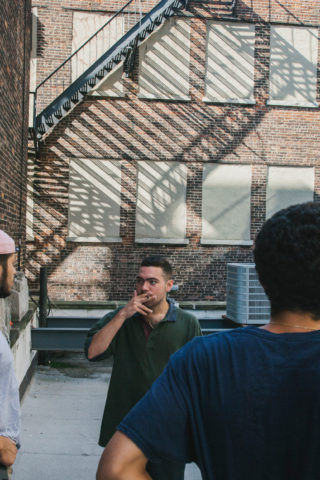
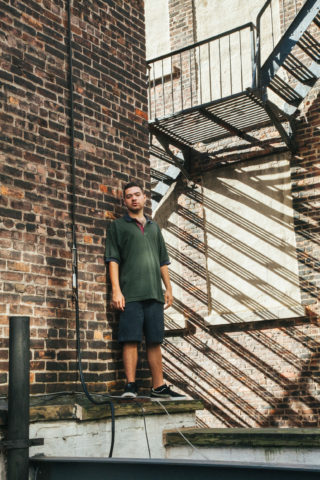
More than anything, ‘No Mountains in Manhattan’ is a love letter to New York – after years of touring with RATKING, Wiki was finally able to come home and settle back into city life, which had never really left him anyway. “I’m not ‘based’ in New York,” he tells me. “You know what I’m saying? You know how people be ‘based’ somewhere. Like, I grew up in New York. I dunno. I don’t wanna sound like a douche bag.”
Hanging out at his place in China Town, collaborating with friends and soaking up the New York culture, he was inspired to reflect on his journey so far. “I just had to get this shit off my chest,” he tells me. “I feel like everything I’ve been through in the past – not been through like that, but just living my life. I had to get that off my chest. And just get to the point where I’m at now. Getting through the obstacles that stressed me out through the last year. And I’m feeling cool. I’m feeling good. For me that’s what it was. And that’s what I mean: I needed to get that off my chest. Start clean. Clean slate type shit.
“The album we made, the whole thing we made in New York, pretty much everything. Whereas, like, my last album was a little bit more all over the place – ‘Lil Me’, I mean, I had shit and I was recording in London, recording in LA. It still sounds hella New York and there’s classic New York sounds on there, like ‘3 Stories’ and shit like that, because no matter what it’s always gonna be like that, but this one, really the whole story takes place in the city, you know what I’m saying? Pretty much. So it came from just working in New York: the people I ended up collaborating with were all New York artists and stuff. So I think that has a lot to do with it. You know, just being in the city – like the past four, five years I’ve been touring. So now, this is like the longest time I’ve been in New York for a long period of time, since I was kinda younger, just soaking all that up and that shit.”
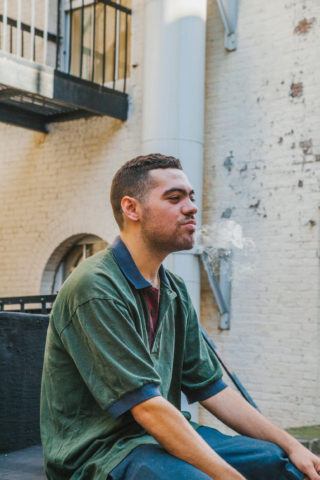
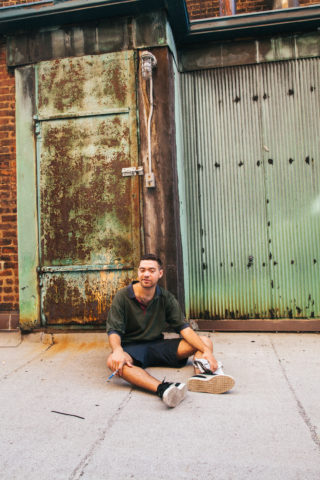
There’s a surprising realness about Wiki. Most hip hop artists are at pains to emphasise their street credentials, and though Wiki is certain that he’s New York to the core, he is open about his affluent upbringing. He was raised on the Upper West Side, and educated at Brooklyn Friends, a fee paying Quaker school in Downtown Brooklyn. In previous interviews he has described himself as ‘upper middle class.’
“Y’all love the class.” He says when I ask about it, taking in my British accent. He shakes his head and leans forward, speaking frankly. “To me it’s just like, I came up on… it’s a mix. The city’s a mix. I came up with like kids who are really rich and kids from a lower income background. You meet… it’s like I said, you meet people from everywhere, just being in the city. And that exposes you to all kinds of shit. For me, even the spirit of my music. I come from like a Beastie Boys type background, just having fun. I was a punk when I was a kid, you know what I mean? I was like in a stupid ass punk band called the Homeboy Thugs. Shit like that. I just happened to be really good at spittin’ so that’s what helped me float to the top, if anything. Why I’m still doing it now, why I have success or whatever, you know what I mean? So that in itself, you have skill or whatever that’s gonna make people open to you. ‘Shit this dude can spit!’ – at the end of the day that’s what matters. I went to Brooklyn Friends, that’s where, I’m pretty sure, like, Ad-Rock or some shit went there – one of the Beastie Boys went there, so it’s like that history, coming up from that scene. A bunch of my friends went to Bard, like those kids went to Bard too. I just see it as a resurgence of that. And even the team around me, how we do stuff. Like working with Ari Marcopoulos [the photographer who produced RATKING’S ‘Piece of Shit’ video], like, that fool was working with them back in the days, you know what I’m saying? So big up the Beastie Boys, you know what I’m saying. Respect due.”
Not that Wiki’s realness is based on any kind of overt politics. When I ask whether the Ghostface lyric (“Fox News got these wolves dressed as sheep“) on the track ‘Made for This’ is an attempt at a political statement he seems baffled. “For real?” he asks.
“Political shit on the album?” He sighs heavily. “I feel I’m one of these people, I’m not the most read, or on this type of shit. So I don’t like to come out my face and say some dumb shit. But in general I feel like everything’s fucked up. Obviously. I’m not gonna try and talk to you about some specific shit, but just everything going on is kinda crazy. And it’s hard to cope, you know what I mean – accept it, almost. It’s like, ‘oh shit, this is fucked. What are we gonna do?’ I dunno?” He looks at me accusingly. “Y’all are in some shit too.”
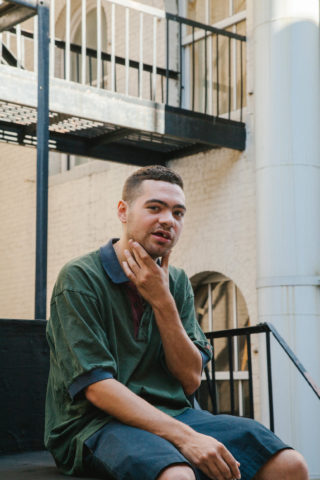
Another surprise is that, despite how wedded Wiki is to his hometown, he has ambitions to make his next album in London, now that he has got the New York record out of his system (and despite our political turmoil).
“I’m tryna go back to London and tap into that a little bit more, make it a little bit more of a mixed record in that sense. And I’m also just tryna be on some real serious… not serious, but I ain’t taking no names, you know. I’m going hard. I’m just gonna go hard. This [album], I just had to get this little story out the way. Like, it was important to get this one off, but the next one I just wanna start fresh and be like, I dunno. That’s what I mean; I have ideas.”
He already has connections in the UK, having worked with established and up-and-coming grime and hip hop artists for the last few years, with RATKING and in his solo work.
“I been around you know, all around,” he says when I ask how well he knows London. “I got homies out there, you know? I been going there for a long time and then a couple of years ago I spent a summer out there. Just recording and chilling and working and doing shows and that kinda shit. I just went out and did a show out there and we met them all – the first time we played a show out there, RATKING. And I knew King Krule fucked with our shit and we fucked with his shit, so his whole squad – he’s from out there, so his whole squad connected with our whole squad.
“I worked with, uh, I got my man Suspect on the fucking bonus track on that record, called ‘Hey Now’. And I worked with Skepta, like a couple years ago I did the ‘That’s Not Me’ remix, and I got him on ‘Lil Me’, on this track called ‘God Bless Me’. I worked with Jesse James [Solomon] for a minute, that’s like the old homie. My man Jadasea. On the RATKING record we got a track with King Krule. I been working with those fools for a minute. My man Mack, I been working with him forever, that’s like my brother. I stayed at his mom’s crib, he’s stayed at my mom’s crib, you know what I’m saying? That type of shit.”
For now though, it’s all about promoting and touring ‘No Mountains…’. “We’re gonna have crazy routines, next level visuals,” Wiki tells me. “We’re gonna have some patriotic type shit going on, you know what I mean? For the Wiki Nation.
“I just want people to listen to the thing. Listen to the album.” He grins. “London will hold me down, you know what I’m saying? It’s all good. It’s all love. But yeah, just listen to it, because I feel like if you listen to it you’ll know I worked hard on it and whatever the fuck. And I think it not only means a lot to me, it might be relatable. You might be able to connect to it. I was saying this the other day – a lot of rap is like, people are like tryna get this fantasy off, you know what I’m saying? And it’s like the shit that would be my weakness I try to make my strength. It’s like when Kanye said, ‘everything I ain’t made me everything I am’, or something like that – when he was coming up and no one was liking him.” He shakes his head, looks down at his beer can. “I dunno. I’m talking shit now.”